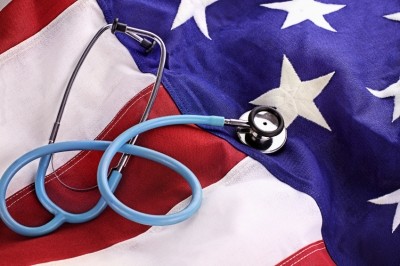Return to growth: Pfizer thanks Hospira and looks to biosimilars

The loss of exclusivity of several products in the early part of this decade - including the one-time top selling drug Lipitor (atorvastatin calcium) – meant pharma giant Pfizer endured four years of declining quarterly sales, year-on-year.
The quarter ending September 31 2015 marked the 17th consecutive quarterly year-on-year drop, but also included the completion of the $17bn (€15bn) acquisition of Hospira.
Since then the firm has announced two quarters of successive revenue growth, the latest - Q1 2016 - reported yesterday with revenues totalling $13bn, up 20% on the same quarter last year.
Operationally, Pfizer’s established business grew 24% “primarily due to the addition of revenues from legacy Hospira products,” CEO Ian Read told stakeholders during a conference call. Without Hospira the business grew just 1%, he continued, although he acknowledged positive currency exchange also had an impact.
“The addition of the Hospira's leading generic injectables portfolio with Pfizer's legacy branded injectables establishes Pfizer as the number one sterile injectables company globally.”
This, combined with Pfizer’s expanded biosimilars offering, “will help us to move the established pharmaceuticals business from a period of loss-of-exclusivity-driven decline to potential growth.”
Biosimilars
Pfizer was marked to become the dominant player in the biosimilar industry when it first announced the Hospira deal.
Since then the firm is on the verge of launching its first biosimilar in the US – Inflectra, a version of J&J’s monoclonal antibody Remicade (infliximab) – and president of the established pharma business John Young said Pfizer remains “very bullish” about the opportunity for the combined biosimilar portfolio.
“The global market for biosimilars is expected to grow from around $1 billion annually in 2013 to somewhere on the order of $17bn to $20bn in 2020,” he told investors.
“We have overall around nine distinct biosimilar molecules in different stages of development and approval. We're going to look to optimize the launch of that portfolio on a global basis over the coming years.”
Pfizer has three biosimilars available in certain markets outside the US: Inflectra, Nivestim (filgastrim) and Retracit (epoetina zeta).
Manufacturing issues
Read also spoke of the manufacturing problems which have troubled Hospira’s global network over the past few years (see here in Australia, India, Italy, and the US, for example).
“We have addressed the specific issues related to legacy Hospira's manufacturing and have developed a plan to implement Pfizer quality standards at the sites. And we have dedicated resources to support the sites as they complete their transition to the Pfizer network.”
He added he believes up to $1bn of annual cost savings synergies can be achieved across the manufacturing network by 2018, an increase from the original target of $800m.








